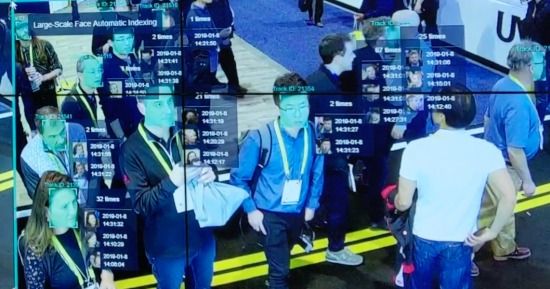Law enforcement agencies dismantled the infrastructure of Emotet, a notorious email-based Windows malware behind several botnet-driven spam campaigns.
Category: law enforcement – Page 14

Five ways to make AI a greater force for good in 2021
At the same time, there was indeed more action. In one major victory, Amazon, Microsoft, and IBM banned or suspended their sale of face recognition to law enforcement, after the killing of George Floyd spurred global protests against police brutality. It was the culmination of two years of fighting by researchers and civil rights activists to demonstrate the ineffective and discriminatory effects of the companies’ technologies. Another change was small yet notable: for the first time ever, NeurIPS, one of the most prominent AI research conferences, required researchers to submit an ethics statement with their papers.
So here we are at the start of 2021, with more public and regulatory attention on AI’s influence than ever before. My New Year’s resolution: Let’s make it count. Here are five hopes that I have for AI in the coming year.

AT&T outage: Internet, 911 disrupted, planes grounded after Nashville explosion. Get the latest updates
“Power is essential to restoring wireless and wireline communications, and we are working with law enforcement to get access to our equipment and make needed repair,” the statement said. “There are serious logistical challenges to working in a disaster area and we will make measurable progress in the hours and days ahead.
We’re grateful for the work of law enforcement as they investigate this event while enabling us to restore service for our customers.
The outages were reported several hours after an explosion in downtown Nashville that took place near an AT&T facility.

Smart Prisons: Managing and Rehabilitating Prisoners with Psychology, Empathy and AI
Re-Imagining Prisons — with AI, VR, and Digitalization.
Ira Pastor, ideaXme life sciences ambassador, interviews Ms Pia Puolakka, Project Manager of the Smart Prison Project, under the Criminal Sanctions Agency, within Finland’s Central Administration Unit.
Criminal Sanctions Agency: https://www.rikosseuraamus.fi/en/index/topical/pressreleases…tices.html
Ira Pastor Comments
In 2018, according to the World Prison Population List, which gives details of the number of prisoners held in 223 prison systems in independent countries and dependent territories around the globe, there were close to 11 million people are held in penal institutions, either as pre-trial detainees/remand prisoners or having been convicted and sentenced. About 50% of them were represented by prison populations in the U.S., China, Brazil, Russia and India.


Omniviolence Is Coming and the World Isn’t Ready
The terrorist or psychopath of the future, however, will have not just the Internet or drones—called “slaughterbots” in this video from the Future of Life Institute—but also synthetic biology, nanotechnology, and advanced AI systems at their disposal. These tools make wreaking havoc across international borders trivial, which raises the question: Will emerging technologies make the state system obsolete? It’s hard to see why not. What justifies the existence of the state, English philosopher Thomas Hobbes argued, is a “social contract.” People give up certain freedoms in exchange for state-provided security, whereby the state acts as a neutral “referee” that can intervene when people get into disputes, punish people who steal and murder, and enforce contracts signed by parties with competing interests.
The trouble is that if anyone anywhere can attack anyone anywhere else, then states will become—and are becoming—unable to satisfy their primary duty as referee.
In The Future of Violence, Benjamin Wittes and Gabriella Blum discuss a disturbing hypothetical scenario. A lone actor in Nigeria, “home to a great deal of spamming and online fraud activity,” tricks women and teenage girls into downloading malware that enables him to monitor and record their activity, for the purposes of blackmail. The real story involved a California man who the FBI eventually caught and sent to prison for six years, but if he had been elsewhere in the world he might have gotten away with it. Many countries, as Wittes and Blum note, “have neither the will nor the means to monitor cybercrime, prosecute offenders, or extradite suspects to the United States.”
Technology is, in other words, enabling criminals to target anyone anywhere and, due to democratization, increasingly at scale. Emerging bio-, nano-, and cyber-technologies are becoming more and more accessible. The political scientist Daniel Deudney has a word for what can result: “omniviolence.” The ratio of killers to killed, or “K/K ratio,” is falling. For example, computer scientist Stuart Russell has vividly described how a small group of malicious agents might engage in omniviolence: “A very, very small quadcopter, one inch in diameter can carry a one-or two-gram shaped charge,” he says. “You can order them from a drone manufacturer in China. You can program the code to say: ‘Here are thousands of photographs of the kinds of things I want to target.’ A one-gram shaped charge can punch a hole in nine millimeters of steel, so presumably you can also punch a hole in someone’s head. You can fit about three million of those in a semi-tractor-trailer. You can drive up I-95 with three trucks and have 10 million weapons attacking New York City. They don’t have to be very effective, only 5 or 10% of them have to find the target.” Manufacturers will be producing millions of these drones, available for purchase just as with guns now, Russell points out, “except millions of guns don’t matter unless you have a million soldiers. You need only three guys to write the program and launch.” In this scenario, the K/K ratio could be perhaps 3/1,000,000, assuming a 10-percent accuracy and only a single one-gram shaped charge per drone.
Will emerging technologies make the state system obsolete? It’s hard to see why not.

Awesome Idea: Turn Rikers Island Into A Solar Farm
Kate Aronoff wrote about a great idea recently: turn Rikers Island into a solar farm. Transforming a prison that was built on heaps of trash into a solar farm does have many benefits.
Her article dives into the past as well as the present of Rikers Island and she points out that both share the story of the United States itself. The island’s ownership has roots traced to slaveowners since the 1660s and played a huge role in the kidnapping ring that sold black people in the North back to slavery in the South under the Fugitive Slave Act. The island was sold in 1884 and it became a penal colony. The island was redesigned into a massive jail complex.
Today, 80% of the island’s landmass is landfill. Aronoff, with her words, painted a picture of an island that is filled with decomposing garbage and prisoners — with 90% of them being people of color. “Heat in the summer can be unbearable, which has lent to its ominous nickname: The Oven,” she wrote. She referenced another account from Raven Rakia who spoke about the island’s “environmental justice horror show.” Rakia noted that 6 of the island’s 10 facilities don’t have any air conditioning.

Congress introduces bill that bans facial recognition use
“Facial recognition is a uniquely dangerous form of surveillance. This is not just some Orwellian technology of the future — it’s being used by law enforcement agencies across the country right now, and doing harm to communities right now,” Fight for the Future deputy director Evan Greer said in a statement shared with VentureBeat and posted online.
Members of the United States Congress introduced a bill today, The Facial Recognition and Biometric Technology Moratorium Act of 2020, that would prohibit the use of U.S. federal funds to acquire facial recognition systems or “any biometric surveillance system” use by federal government officials. It would also withhold federal funding through the Byrne grant program for state and local governments that use the technology.
The bill is sponsored by Senators Ed Markey (D-MA) and Jeff Merkley (D-OR) as well as Representatives Ayanna Pressley (D-MA) and Pramila Jayapal (D-WA). Pressley previously introduced a bill prohibiting use of facial recognition in public housing, while Merkley introduced a facial recognition moratorium bill in February with Senator Cory Booker (D-NJ).
The news comes a day after the Boston City Council in Pressley’s congressional district unanimously passed a facial recognition ban, one of the largest cities in the United States to do so. News also emerged this week about Robert Williams, who’s thought to be the first person falsely accused of a crime and arrested due to misidentification by facial recognition.